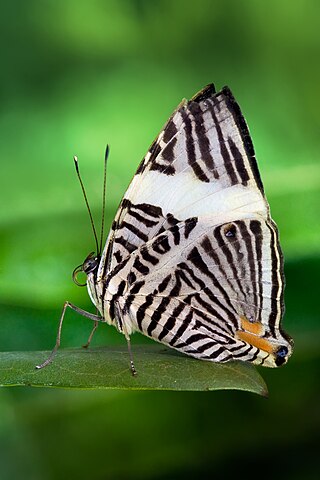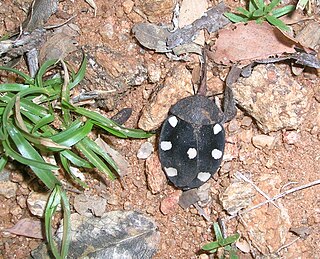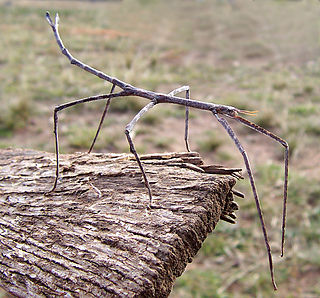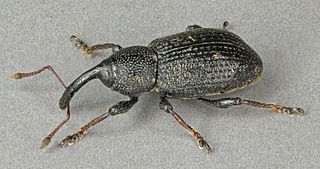
Picus is a genus of birds in the woodpecker family. It has representatives in Europe, Asia and North Africa. The genus name is Latin for "woodpecker". The genus Picus was erected by the Swedish naturalist Carl Linnaeus in 1758 in the tenth edition of his Systema Naturae.

Polyura is a subgenus of butterflies also referred to as Nawab butterflies and belonging to the brush-footed butterfly subfamily Charaxinae, or leafwing butterflies. Like the large and conspicuous forest queens, they belong to the genus Charaxes, unique genus of the tribe Charaxini.

Dermestes is a genus of beetles in the family Dermestidae, the skin beetles. The genus is distributed worldwide.

Athrips is a genus of moths in the family Gelechiidae.

Achlya flavicornis, the yellow horned, is a moth of the family Drepanidae. The species was first described by Carl Linnaeus in his 1758 10th edition of Systema Naturae. It is found from Europe to the eastern Palearctic ecozone.

Eudocima is a genus of moths of the family Erebidae with numerous tropical species. The genus was first categorised by Gustaf Johan Billberg in 1820, and species currently in the genus have been placed under a range of other genera in the past. Adult moths in the genus are known for puncturing and feeding on the juices of fruits, because of which they are considered as pests by horticulturists.

Lygephila is a genus of moths in the family Erebidae. The genus was erected by Gustaf Johan Billberg in 1820.

Heliconiini is a tribe of butterflies in the subfamily Heliconiinae, also known as the passion-vine butterflies. This group has roughly 100 species and subspecies distributed primarily in the Neotropics.

Blera is primarily a North American genus, though there are 3 species from Europe. The genus is characterized by the following characters:

Colobura is a butterfly genus in the family Nymphalidae found from Mexico to South America.

Colobura dirce, the mosaic or zebra mosaic, is a butterfly of the family Nymphalidae. It is found in Central America. the Caribbean, and northern South America.

Therea is a genus of crepuscular cockroach found in South, East and Central India and in Sri Lanka. Its species are found on the ground or at low levels in vegetation in lowland and foothill forests and woodlands that vary from dry to semi-humid. Adults are generally 1.5–2.8 cm (0.6–1.1 in) long and black with contrasting markings in whitish or orange. The genus includes some species that are popular as pets.

Ctenomorpha marginipennis, the margin-winged stick insect, is a species of stick insect endemic to southern Australia. The species was first described by George Robert Gray in 1833, then placed in the genus Didymuria by Kirby in 1904. It was subsequently accepted as "Ctenomorpha chronus ".
In the 10th edition of Systema Naturae, Carl Linnaeus classified the arthropods, including insects, arachnids and crustaceans, among his class "Insecta". Insects with net-veined wings were brought together under the name Neuroptera.

Choerades is a genus of robber flies described by Francis Walker in 1851, belonging to the family Asilidae, subfamily Laphriinae.

Urania is a genus of colorful, dayflying moths in the family Uraniidae, native to warmer parts of the Americas. Their larvae feed on Omphalea.

Notaris is a genus of marsh weevils in the family of beetles known as Brachyceridae. There are at least 40 described species in Notaris.

Athripsodes is a genus of insects in the family Leptoceridae.
Liparus is a genus of beetles belonging to the family Curculionidae. The species of this genus are found in Europe.
















